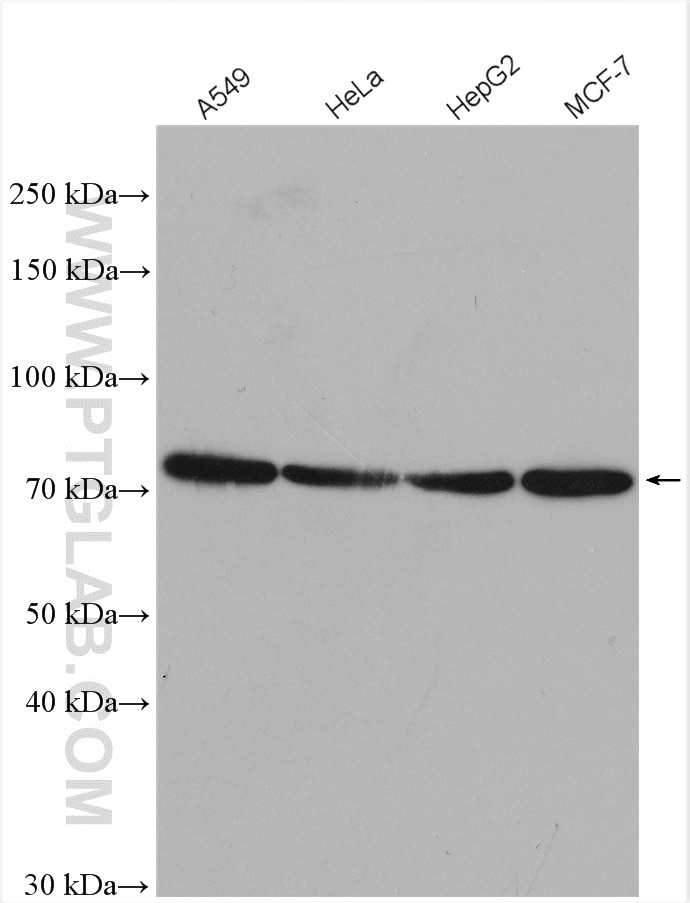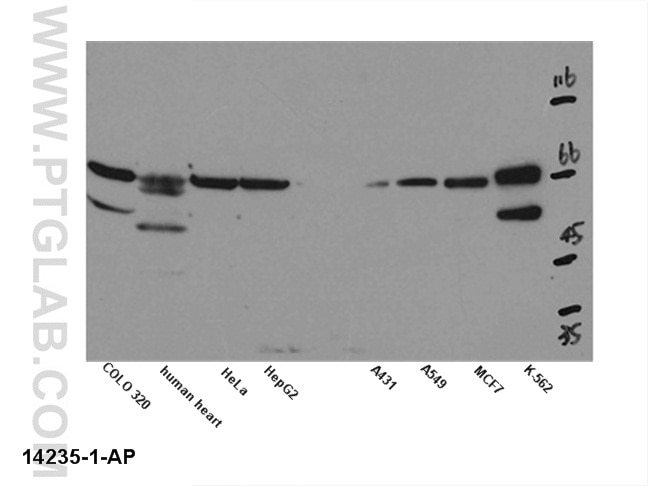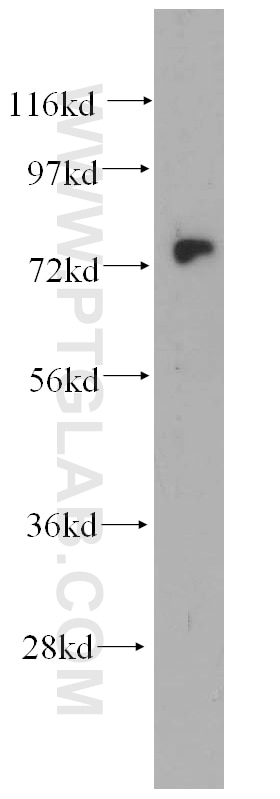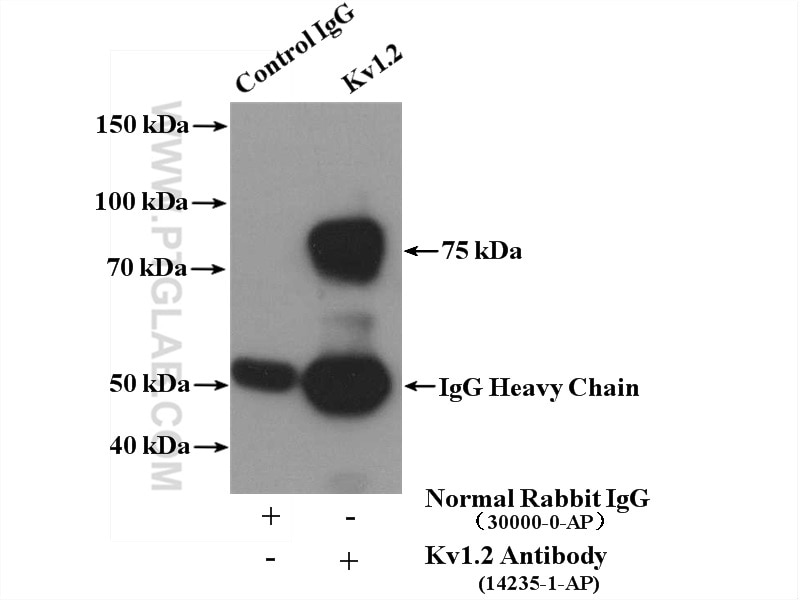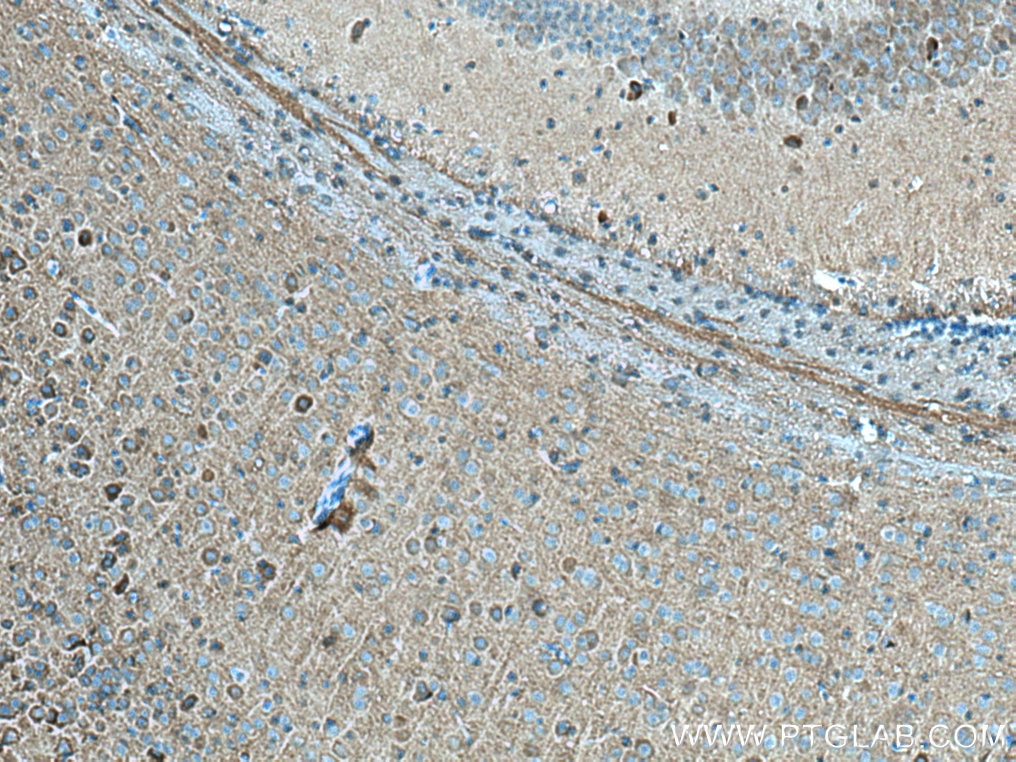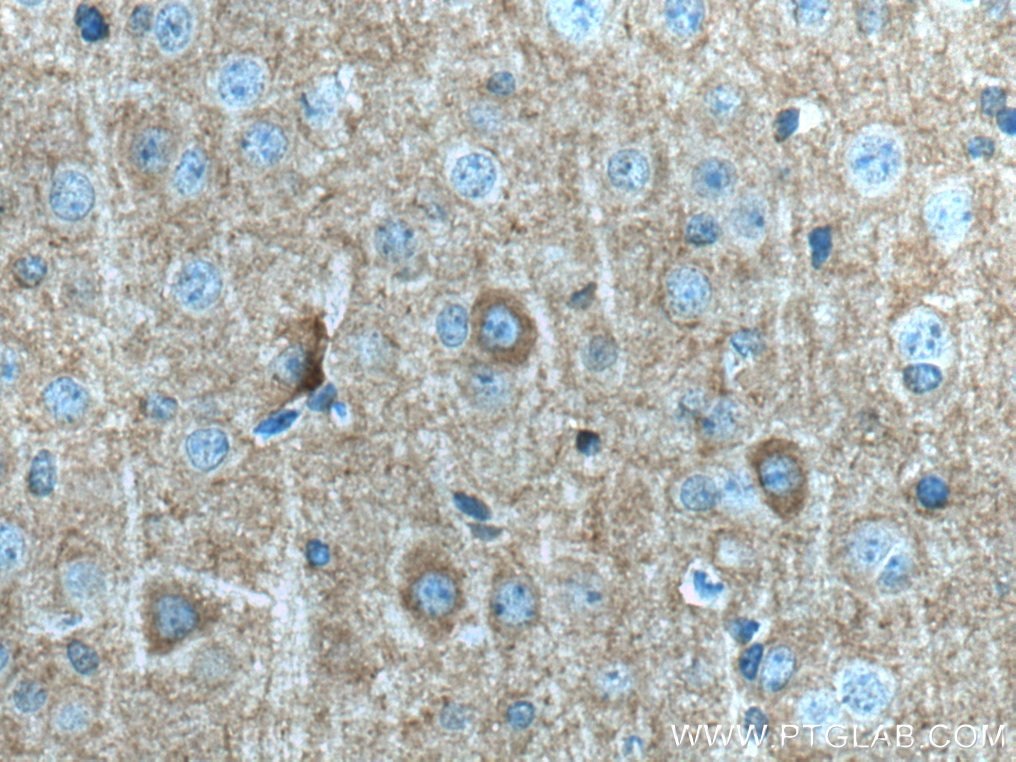Tested Applications
| Positive WB detected in | A549 cells, multi-cells/tissue, human heart tissue, HeLa cells, HepG2 cells, MCF-7 cells |
| Positive IP detected in | HeLa cells |
| Positive IHC detected in | mouse brain tissue Note: suggested antigen retrieval with TE buffer pH 9.0; (*) Alternatively, antigen retrieval may be performed with citrate buffer pH 6.0 |
Recommended dilution
| Application | Dilution |
|---|---|
| Western Blot (WB) | WB : 1:500-1:3000 |
| Immunoprecipitation (IP) | IP : 0.5-4.0 ug for 1.0-3.0 mg of total protein lysate |
| Immunohistochemistry (IHC) | IHC : 1:50-1:500 |
| It is recommended that this reagent should be titrated in each testing system to obtain optimal results. | |
| Sample-dependent, Check data in validation data gallery. | |
Published Applications
| WB | See 1 publications below |
| IHC | See 1 publications below |
Product Information
14235-1-AP targets Kv1.2 in WB, IHC, IP, ELISA applications and shows reactivity with human, mouse, rat samples.
| Tested Reactivity | human, mouse, rat |
| Cited Reactivity | human, mouse |
| Host / Isotype | Rabbit / IgG |
| Class | Polyclonal |
| Type | Antibody |
| Immunogen |
CatNo: Ag5477 Product name: Recombinant human KCNA2 protein Source: e coli.-derived, PGEX-4T Tag: GST Domain: 1-163 aa of BC043564 Sequence: MTVATGDPADEAAALPGHPQDTYDPEADHECCERVVINISGLRFETQLKTLAQFPETLLGDPKKRMRYFDPLRNEYFFDRNRPSFDAILYYYQSGGRLRRPVNVPLDIFSEEIRFYELGEEAMEMFREDEGYIKEEERPLPENEFQRQVWLLFEYPESSGPAR Predict reactive species |
| Full Name | potassium voltage-gated channel, shaker-related subfamily, member 2 |
| Calculated Molecular Weight | 499 aa, 57 kDa |
| Observed Molecular Weight | 66-75 kDa |
| GenBank Accession Number | BC043564 |
| Gene Symbol | Kv1.2 |
| Gene ID (NCBI) | 3737 |
| RRID | AB_2280576 |
| Conjugate | Unconjugated |
| Form | Liquid |
| Purification Method | Antigen affinity purification |
| UNIPROT ID | P16389 |
| Storage Buffer | PBS with 0.02% sodium azide and 50% glycerol, pH 7.3. |
| Storage Conditions | Store at -20°C. Stable for one year after shipment. Aliquoting is unnecessary for -20oC storage. 20ul sizes contain 0.1% BSA. |
Protocols
| Product Specific Protocols | |
|---|---|
| IHC protocol for Kv1.2 antibody 14235-1-AP | Download protocol |
| IP protocol for Kv1.2 antibody 14235-1-AP | Download protocol |
| WB protocol for Kv1.2 antibody 14235-1-AP | Download protocol |
| Standard Protocols | |
|---|---|
| Click here to view our Standard Protocols |
Publications
| Species | Application | Title |
|---|---|---|
Adv Sci (Weinh) Branched-Chain Amino Acids Deficiency Promotes Diabetic Neuropathic Pain Through Upregulating LAT1 and Inhibiting Kv1.2 Channel | ||
Cell Commun Signal Transcriptional regulation of KCNA2 coding Kv1.2 by EWS::FLI1: involvement in controlling the YAP/Hippo signalling pathway and cell proliferation |

